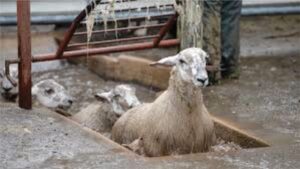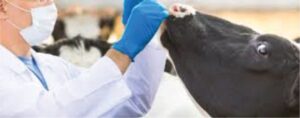AHDA ACTIVITY AND MILESTONES
CURRENT ACTIVITY
AHDA is currently working on a range of areas concerned with animal health and welfare in the UK including the following;
- New regulations for working with OP Sheep dip
- Increased training for RAMAs (SQP)
- Working with others on post Brexit UK farming policies
- Working with farm assurance schemes for greater RAMA (SQP) involvement
- Helping support AHDA members companies through post-covid 19 challenges
- Maintaining and enhancing the reputation of AHDA members
- Work to support the continuation of multi channel distribution in the UK



MILESTONES
2023
SQP compulsory anthelmintic resistance CPD taken within each two year cycle
AHDA see the subject of managing anthelmintic resistance, particularly with SQPs on the front line on a day to day basis that AHDA Council recommended that in this new two-year CPD period, for the CPD window from July 2021 through to June 2023, there will be an element of compulsory farm CPD so 24 of the 80 CPD points will need compulsory, with a focus on resistance and its management, within the existing points target. This was agreed by the AMTRA Council and Board. AHDA will also enter into discussion with the other two SQP registration bodies.
AHDA joins in discussions in formation of CANTER
CANTER is the first group of its kind to bring together so many representatives from different sectors to tackle the issue of wormer resistance in horses in the UK. Still in its early days of formation but the prospects look really positive in the tackling of wormer resistance in horses.
2022
The AHDA working group broadens their scope of work and develops a number of action points around enhancing responsible prescribing. This campaign is launched in March and includes recording the justification for prescribing, a focus on faecal egg counting, the introduction of an AHDA animal health plan and also the desire to see the 10 litre pack size for white wormer withdrawn from sale.
The AHDA working group looking at the Northern Ireland protocol continued to lobby the EU commission to protect the trade of veterinary medicine products from Great Britain into Northern Ireland without any trade restrictions in place.
AHDA focusses on the involvement of RAMA (SQPs) in the new agricultural proposals set out within the DEFRA Pathway scheme, ensuring that RAMA (SQPs) are continually involved with this work and assist with the continuing raising of standards in animal health and welfare
AHDA starts work with the VMD as part of an initiative that is looking at anthelmintic resistance in equine.
2021
AHDA works together with AMTRA, SCOPS, NSA and NAAC to develop a sheep dipping code of practice as guidance for farmers and also professional mobile dipping companies.
Alongside the new code of practice, AHDA ensures clarification of the proper prescribing of OP sheep dip product and underlines that OP sheep dip cannot be bought in bulk or stored by sheep dipping contractors.
Working with NPTC and City & Guilds, AHDA enables the sheep dipping certificate of competence to be updated to reflect current dipping practice.
AHDA establishes online working groups to overcome continued challenges of face-to-face meetings. These groups focus on two key industry issues; managing anthelmintic resistance and working to resolve barriers to trade through the Northern Ireland protocol.
2020
Coronavirus becomes a worldwide pandemic.
The UK goes into lockdown and AHDA lobbies government on the essential need for countryside retailers to remain in a position of continuation of trade, even if they are closed to the public.
AHDA member companies grow increasingly concerned about the impact of emergency closure on the industry.
Ten days of intensive lobbying from AHDA resulted in countryside retailers being added to the ‘exempt from closure’ list.
The VMD announced that SQP’s can prescribe remotely where required (for a limited time through the outbreak).
2019
AHDA celebrates its 35th AGM
Other important work continues around; prescribing protocol for SQPs, registering and auditing professional mobile sheep dipping contractors and farm health plans.
AHDA conducts a debut strategic review on the future role and function of the Association.
2018
AHDA has successfully led and won a 34 month long battle to retain the right of the SQP to prescribe veterinary medicines.
This vital legally-binding regulation will remain compliant with both UK and EU post-Brexit law.
2017
AHDA employs Ian Scott as European consultant -together with the professional services of the lobbying company Hume Brophy.
Campaigning begins against the proposal that states all veterinary medicines will be prescribed through the vet channel only.
2016
AHDA appoints Bryan Lovegrove as Secretary General
2015
AHDA celebrates 30 years as an association.
Launch of an awareness campaign for sheep farmers to support them in using wormers effectively on farm- to reinforce the purpose of the prescribing protocols introduced in 2014.
European legislation on medicated feeds and overall veterinary medicines comes under attack from FVE (Federation of Veterinarians in Europe)
AHDA campaigns heavily in Europe to successfully prevent the dissolution of the SQP distribution channel.
2014
Following 2013’s online petition, VMD issues reminder to online retailers of NFA-VPS medicines of the legal obligations of an SQP.
Pressure increases on the VMD and manufacturers to head off increasing levels of triple resistance in sheep anthelmintics.
AHDA members contribute to the code of practice being developed for rodenticides and dietetics.
AHDA contributes to the VMD-funded research into distribution routes of medicines.
AHDA launches sheep anthelmintic resistance prescribing protocols for SQPs with AMTRA, SCOPS and BVA.
AHDA assesses the long-awaited EU proposals for new veterinary medicines legislation and reports no discernible threat to the POM-VPS or AVM-GSL distribution channels.
2013
R -SQP Sally Harmer is selected to take the first SQP seat on the VPC, enabling an SQP’s voice to actively advise on classifications, advice and use of products.
Alongside XL Vets, AHDA creates an online petition calling for verbal intervention when prescribing all VPS medicines.
AHDA successfully lobbies the VMD against increasing premises inspection fees that could potentially cost the industry £70,000.
AHDA visits the EU Commission as well as MEPs, the NFU and the International Federation of Animal Health Europe to raise awareness of the UK’s distribution system ahead of the expected EU directive review and new draft legislation on animal medicines.
AHDA gathers industry support for the POM VPS distribution system to emphatically oppose a British Veterinary Association (BVA) call to the VMD for a reclassification of all anthelmintics to POM-V.
2012
AHDA presents at both the Sheep Veterinary Society conference and British Cattle Veterinary Association congress in an attempt to improve vet/SQP relationships.
AHDA negotiates block membership of Moredun Institute for all member SQPs.
AHDA continues to fight a decision by the VMD to refuse reclassification of new sheep anthelmintics (including Zolvix)
AHDA invests in independent survey on the value of the VPS industry to rural economy.
Landmark membership of the association is achieved, representing 90 per cent of the value of the POM-VPS industry (an increase from less than 50 per cent in 2007).
AHDA initiates the founding of COWS (Control of Worms Sustainably, now known as Control of Parasites in Cattle).
AHDA provides start-up funding, and with the support of levy board Eblex, a consortium of stakeholders is developed, with representation from across the UK. This has developed into a full revision of the advice manual, leading to clear, relevant and up-to-date advice on cattle parasite control for SQPs and vets.
2011
AHDA and AMTRA introduce new in-store title– RAMA (Registered Animal Medicine Advisor) to assist with customer recognition of SQP’s.
Member benefits are added to the AHDA package, including access to a free legal helpline and business savings.
2010
AHDA assists SCOPS in a survey of SQPs on barriers preventing uptake of its principles.
AHDA participates in a debate at the House of Lords: “Are SQPs better placed than vets to sell and provide information on POM-VPS products?”
VMD releases a list of medicines it would support for reclassification following seven years of work including analysis of both the Marsh report and Competition Commission evidence. Some manufacturers make changes, but many do not.
Products such as Rotavec Corona, Leptavoid H, Lactovac, Spirovac and Advantage come on to the shelf.
Following the launch of POM-V sheep wormer Zolvix by Novartis containing a new active ingredient, AHDA helps train 90 per cent of R-SQPs within three months following VMD assurance reclassification of the product to POM-VPS isn’t “too far away”.
AHDA organises a stakeholder meeting on the EU ban on imports of US and Canadian colostrums, lobbying to enable reinstatement.
Following Defra withdrawal of funding for SCOPS, AHDA works with a funding consortium to enable it to run.
AHDA remains an annual contributor to the initiative. AHDA and AMTRA commission first of an annual series of regional CPD training events.
2009
AHDA works with the VMD to create a template for the proposed Accredited Internet Retailer Scheme.
AHDA supports the re-classification of selenium injection deposel to POM-VPS (but product is later withdrawn)
AHDA lobbies the VPC in support of re-classification of enzootic and orf vaccines as POM-VPS. Evidence is presented but decision is rejected.
AHDA produces a revised edition of an animal medicines record book as a useful tool for POM-VPS prescribers.
Following high-level talks, AHDA and RPSGB (now the Royal Pharmaceutical Society) agree a membership package, with both organisations concurring to work on common cause as well as offering seats on respective councils.
2008
AHDA supports reclassification of licensed copper products from AVM-GSL to POM-VPS.
AHDA supports the EA’s move to withdraw cypermethrin sheep dips due to environmental pollution concerns.
A new certificate of competence for OP dips is set up to maintain sheep dip as an option for treating scab.
AHDA assists VMD with publicity to stop on-farm mixing of medicines.
VMD withdraws planned label changes to permit mixing with non-licensed nutritional supplements.
2007
Ian Scott takes on role of AHDA secretary general.
2006
As a result of the 2002 challenge, a number of medicines are reclassified, helping to secure the future viability of animal health distributors while offering animal owners greater choice, competition, availability and pricing.
2005
AHDA submits research and conclusions to VMD on reclassification of certain POM medicines, following the Marsh report and Competition Commission evidence that some distribution categories for products had been set “too cautiously”.
2004
An EU directive is introduced, declaring that all member states must only sell medicines for food-producing animals with a veterinary prescription.
AHDA lobbying successfully challenges this, resulting in agreement of a new structure to elevate training requirements for all qualified staff to sell and prescribe PML animal medicines.
The Marsh report An independent review of dispensing by veterinary surgeons of prescription-only medicines supports the amended directive, recommending a wider availability of cheaper medicines to improve animal welfare.
1992
As a result of AHDA lobbying and with the support of the Kidd report (which set the framework for distribution of medicines across Europe), the 1990 directive is amended, enabling PML sales to continue.
1990
A draft directive from the EU proposes to convert most Pharmacy Merchants List (PML) medicines (now POM-VPS and NFA-VPS) to prescription only.
1987
Roger Dawson becomes AHDA secretary general.
1985
On the 17th June, six members of the animal health retail industry come together to form the Animal Health Distributors Association.
Founding members are pharmacists Colin Hall, John Miskelly and Thomas Jeary and company managing directors George Baxter, David Barbour and John Alborough.